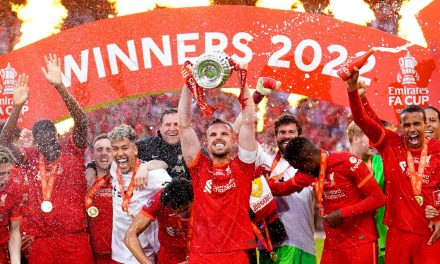In the annals of sports debates, few subjects are as contentious as the terminology used for the beautiful game played by millions around the globe. Is it “football” or “soccer”? With the world divided on this issue, it’s time we unmask the history and reason behind these terms.
The birth of football
The sport we know today as football finds its roots deep in history, with various forms of the game played in ancient cultures worldwide. However, the modern game we love truly took shape in England during the 19th century. Thus, the term derived from the act of moving a ball with the foot, was born.
In 1863, the Football Association (FA) was formed in England, codifying the rules for the game we now know as association football. This sport’s beauty and simplicity quickly spread across the world, earning it the nickname “the beautiful game.”

The emergence of the term “soccer”
While “football” might be the commonly accepted term in the UK, Europe, and most of the world, there’s a region where it’s known by a different name. In the United States and Canada, the game is referred to as “soccer.” But how did this come about?
The term actually originated as slang in England in the late 19th century. Derived from the term “association” in “association football,” the phrase was shortened to “assoc,” which then transformed into “socca,” and finally, “soccer.” The term gained popularity as a way to distinguish the game from other forms of the sport prevalent during that period.
When the sport was introduced to North America, it was referred to as “soccer” to avoid confusion with American football, the prevailing sport in the region. Over time, this name stuck, and hence the divide in terminology.
Around the world
Whether you call it one name or the other typically depends on where you live. In countries where another sport is known as by that name, such as America and Australia (Aussie Rules), the term “soccer” is more widely used. However, in most other parts of the world, the game is known as football.
That said, some people do start changing what they call it based on their experiences and interests. Take Ryan Reynolds and Rob McElhenney for instance, who bought Wrexham AFC a couple years back. They started calling it one name, quickly learned their mistake when they bough the North Wales club and now they call it by another name. You can actually learn all about their transition of learning more about the game in their Disney+ documentary, Welcome to Wrexham, which is well worth a watch.

FIFA: Unifying the game
The Fédération Internationale de Football Association, better known as FIFA, is the international governing body for the sport. Despite the name disparity, FIFA uses “football” to refer to the sport, further solidifying its global recognition.
However, interestingly, FIFA recognises the use of “soccer” in its official documents, acknowledging the term’s historical and regional significance. This nod towards both terms suggests an understanding of the diversity of the sport and its fans around the world.
A matter of preference
In the end, no matter what you call the game, the term you use is largely a matter of where you’re from. The sport remains the same worldwide: a universally loved game that brings together people from all walks of life. As fans, our focus should be less on what we call the game and more on the joy it brings us.

The name of the beautiful game
In conclusion, the naming of the game stems from historical and regional influences. Regardless of the term used, the passion, excitement, and camaraderie this sport evokes remains the same. Whether you’re cheering at a match in Liverpool or enjoying a soccer game in Seattle, the love for the game transcends all borders and languages.
So, call it what you will. As fans, let’s continue to celebrate the beautiful game and the joy it brings to us all. In fact, why not let us know what you call it and where you’re from so we can get a better picture of what people call it in different places.
Want even more content on the beautiful game? Then just click here.





Trackbacks/Pingbacks